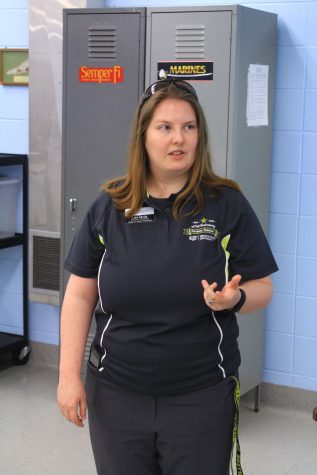Retiring Ted Ayres leaves legacy, continues community work
For the past 19 years, Wichita State has turned to Vice President and General Counsel Ted Ayres for a variety of needs, including legal and personnel issues. However, starting this June, Ayres will write a new chapter of his life: retirement.
Ayres practiced law in various capacities from 1972 to 1976, never feeling satisfied in the connection he was making to his community. His first role as legal counsel for a university came in 1976 at the University of Missouri, and, a decade later, he became general counsel to the Kansas Board of Regents.
Holding that position for 10 years, Ayres did legal consulting with many schools, including WSU, which did not have a full-time legal counsel at the time. He took the job at WSU in 1996 after being lobbied by former Vice President Fred Suderman and now Athletic Director Eric Sexton.
The fact that he greatly enjoyed working with WSU also helped convince him.
“Early on in that process, I really enjoyed Wichita State,” Ayres said. “I liked the feel of it, I liked the community, I liked the people here.”
Much has happened during Ayres’ tenure at WSU, such as the construction of Shocker Hall and the move toward becoming an Innovation Campus. However, Ayres said the most difficult part of his job has been dealing with personnel problems.
He said it is never easy to let anyone go, but the staff here has always been equipped to handle it.
“It’s difficult for everybody,” Ayres said. “One of the things I’ve enjoyed is that people here don’t take those responsibilities lightly.”
Ayres is perhaps most well known within the community for spearheading the efforts to bring some of the works of Gordon Parks — a photographer and native Kansan whose list of accomplishments and job titles is too long to print — into WSU’s collection.
WSU beat out the New York Public Library and the Smithsonian, among other institutions, to house countless Parks manuscripts and photographs.
Ayres views these works as instrumental in educating young people about the racial discrimination Parks faced, as well as what people face today.
“Those efforts were just a small part of a continuing recognition of the value and importance of a diverse community,” Ayres said. “We should serve people based upon their accomplishments, their qualities and their potentials rather than the color of their face.”
Though he is retiring from his current position, Ayres will continue to work with the Enough is Enough task force that was formed in response to the November attack of Letitia Davis in Fairmount Park. His role is not set in stone yet, but Ayres feels it has loads of potential.
“To have the university act as a positive catalyst, a change-maker, I think is a more aggressive position for us as an institution,” Ayres said. “Accepting that role and embracing that role is being a change-maker.”
However, Ayres will still have a great deal of free time he did not have before, and he does not yet know what he will do with it. An avid St. Louis Cardinals fan, he joked about becoming a beer vendor at Busch Stadium in the summer. More seriously, he said he wants to devote more time to his writing, photography and fishing hobbies.
“It’s going to be interesting to have 50 to 60 additional hours and trying to fill that up productively,” Ayres said. “I plan to be productive — I’m not going to sit around and smoke a pipe.”
Ayres will leave behind a legacy of diligent service to WSU, but, in his mind, his role as a community leader is far from finished.
“I think I can leave here with my head held up high and be very proud, but recognize that there are still things to be done,” Ayres said. “It’s time to write some new chapters.”









